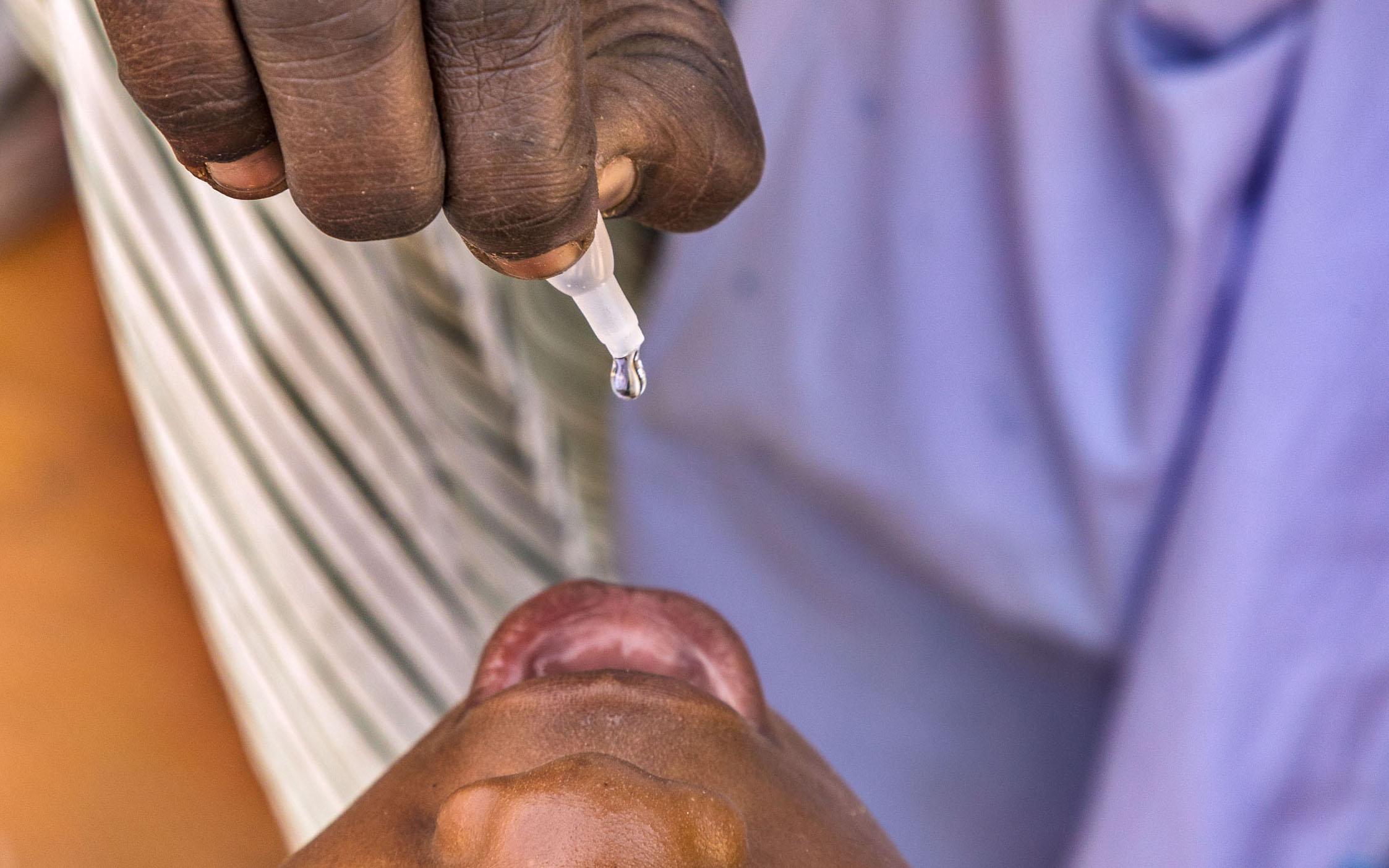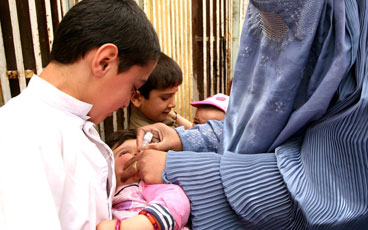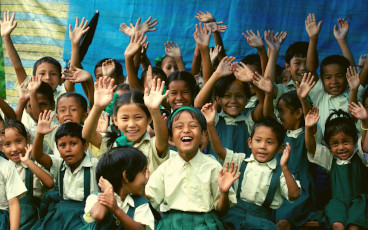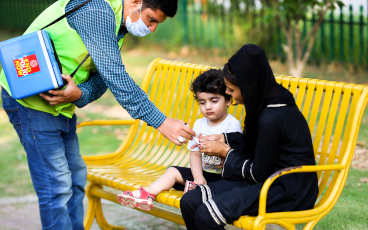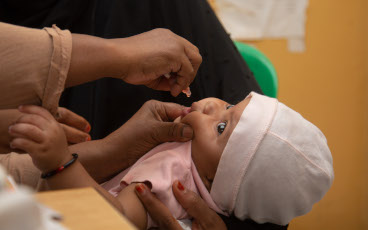99% is not enough
As polio eradication launches plan to tackle the final 1%, funding threatens historic achievement
THE new Strategic Plan to eradicate polio by 2013 is already being compromised by a lack of funds, despite the fact the new approaches outlined in the Plan are already providing an unprecedented opportunity to finish the job, with key endemic countries witnessing historic gains against the disease. Nowhere is progress more evident than Nigeria, where case numbers have plummeted by more than 99% – from 312 cases at this time last year, to three in 2010. In India, for the first time ever, the remaining endemic states of Bihar and Uttar Pradesh have not reported any wild poliovirus type 1 cases concurrently for more than six months.
On 18 June in Geneva, a broad range of stakeholders formally launched the new Strategic Plan 2010-2012 for eradicating wild poliovirus, a goal which is already 99% achieved globally but is seeing a renewed push to reach the final one per cent.
However, that push is being threatened by a $1.3 billion funding gap, which has already seen funding for key activities such as disease surveillance reduced by 25% and immunization campaigns curtailed or postponed.
The Ministers of Health of Nigeria, Angola and Senegal, among a number of other senior health ministry officials, existing and potential funders, vaccine manufacturers and key partner organizations spoke at the event – co-hosted by WHO Director-General Margaret Chan and UNICEF Executive Director Tony Lake – to discuss the implementation, monitoring, economics and financing of the new plan.
With historic progress in northern Nigeria and northern India, stakeholders at the launch stated loud and clear that the polio eradication effort would not – could not – stumble at this final inch because of a lack of funds. Only half of the US$ 2.6 billion budget for the three years is funded.
Stakeholders fully endorsed the range of approaches and new tools in the Plan and echoed the World Health Assembly in calling on the GPEI to fully implement the new strategies with immediate effect.
Failure to meet the financial requirements of eradication has human consequences – in terms of children paralyzed for life by a disease which is entirely vaccine-preventable – as well as the economic consequences of ongoing supplementary immunization in perpetuity in order to maintain the current number of cases. But most compelling are the ethical consquences: failing to protect future generations when the tools are available to do so.
Dr Tachi Yamada, President of the Global Health Program at the Bill & Melinda Gates Foundation, said that Mr Bill Gates, after visiting the key endemic areas of northern Nigeria and Bihar, India, in the past month, had concluded that the GPEI currently had a “one-time opportunity” to finish the job of polio eradication.
Dr Chan stressed that the international community had very few opportunities to improve the world in a permanent way. “Polio eradication is one such opportunity,: she said. “So let’s do it. Let’s make history. Let’s deliver on our promise to every last child, a promise with a pay-back for every future generation of children.”
In a moving conclusion, Mr Lake said it was already clearly apparent where polio would make its final stand – in the most forgotten places, among the most forgotten people. It was here, he said, where every effort must be made not only to eradicate polio but to improve education, to reduce maternal and child mortality, to ensure that health services reached every last child.
“Let’s act and let’s act with an eye to results,” he said. “We must all dedicate ourselves to writing this final chapter and closing the book on polio forever. For every child.”


